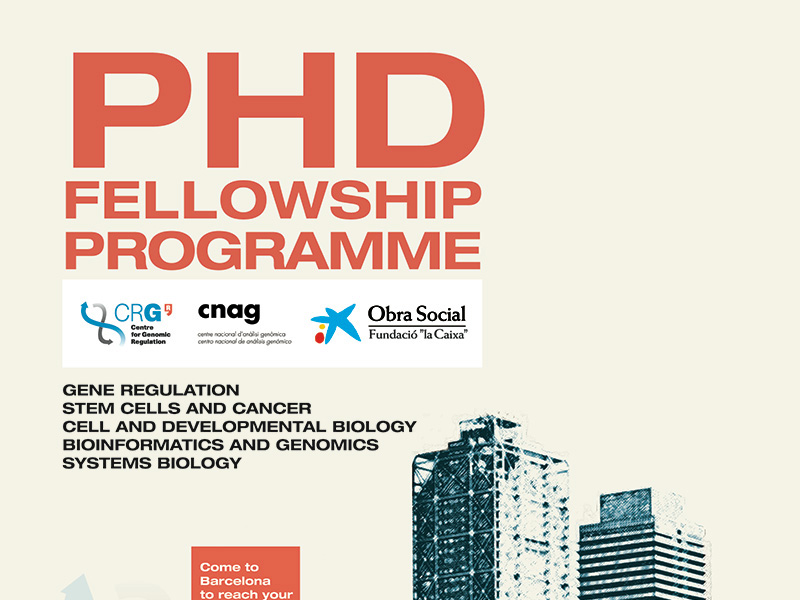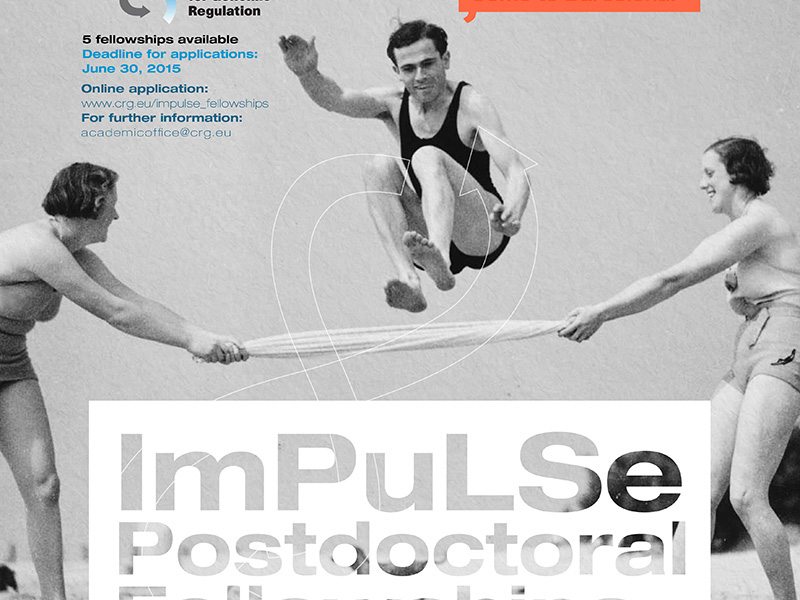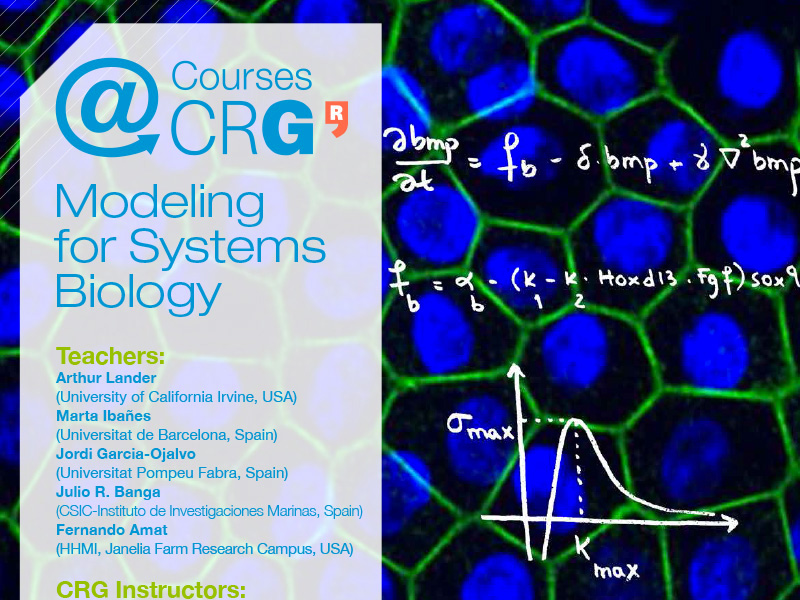In 2015, the International PhD Programme has continued to attract young talents from all over the world, supported both by internal and external competitive funds and the “la Caixa”/Severo Ochoa International PhD Fellowship Programme. This year, in conjunction with the IRB, the VHIR and the IDIBAPS, the CRG has launched a new pilot training programme on research for medical doctors, called the PhD4MD programme. Three medical doctors were selected, and one of them was based at the CRG. The long-term goal of the programme is to train the next generation of physician scientists who will drive research, achieving greater impacts on patients. Globally, our PhD programmes attracted more than 350 applications from over 50 different countries and a total of 26 students were recruited.
The CRG PhD community has continued promoting a high number of initiatives, such as the 9th Annual PhD Symposium (26-27 November, 2015), and the 5th Joint International Retreat, with University College London (June 2015).
The International Postdoctoral Programme at the CRG currently hosts 101 postdocs supported by internal and competitive funding from highly prestigious institutions. The CRG has launched the second edition of the Postdoctoral Programme, co-funded by the European Commission under the COFUND scheme (ImPuLSe) to recruit five new postdocs in 2015. The CRG Postdoctoral community organized the Annual Postdoc Symposium (1 October) and the Postdoctoral Retreat (10-11 December).
Finally, the 3rd edition of the International CRG Summer Internship Programme for undergraduate students was launched with great success in February 2015: Eight internships were awarded to provide undergraduate students with the opportunity to conduct research at the CRG over the summer (126 applications). The CRG also has several partnerships to host Masters students for research internships. In 2015, we had one MIT student, in addition to four ERASMUS+ and two ERASMUS Mundus students.
In 2015, the CRG Advanced Training Programme was enhanced with several new high-level international courses within the framework of Courses@CRG as well as a richer offering of internal courses and workshops. As in previous years, the courses organized by the CRG were open to both local and international scientific communities and delivered high quality training on the latest scientific breakthroughs and technologies.
The CRG Training Unit co-organized and delivered ten high quality Courses@CRG (see below) in 2015, which were attended by more than 130 internal and external participants from research institutes in Europe and the rest of the world, including Australia, New Zealand, India, Egypt, Hong Kong and Brazil. The courses, taught by CRG scientists and 37 external speakers, attracted both male and female researchers and were well represented in terms of gender balance. What is more, this year the CRG sponsored more than 20 travel grants for those participants coming from lower-income countries whose scientific communities require reinforcement.
Internal training has opened new opportunities for both trainers and trainees. The technicians, PhD students and Post-doctoral researchers gained experience in teaching and sharing their knowledge with the rest of CRG community, while participants benefited from the wide range of training activities that were offered throughout the whole year (see below). The 24 workshops were attended by a total of 266 participants from all programmes and fields.
The second edition of the Bio-Business School, organized in collaboration with the Technology & Business Development Office, allowed the participants to develop their skills and knowledge in the field of entrepreneurship.
PhD Theses Defended
| Name | Supervisor | Date | University | Thesis Project |
|---|---|---|---|---|
| Inna Povolotskaya | Fyodor Kondrashov | 06-02-15 | UPF | Context dependent selection in molecular evolution |
| Annamaria Ruggiano | Pedro Carvalho | 26-05-15 | UPF | Control of endoplasmic reticulum homeostasis by Doa 10-dependent protein degradation |
| Maria Aurelia Ricci | Pia Cosma | 05-06-15 | UPF | Chromatin fibers are formed by heterogeneous groups of nucleosomes in vivo |
| Alexandra Grippa | Pedro Carvalho | 12-06-15 | UPF | Control of lipid droplets biogenesis by the seipin complex in budding yeast |
| Natalia Czerniak | Jérome Solon | 23-06-15 | UPF | Head involution in Drosophila melanogaster. On the role of supracellular actomyosin structures in tissue bending, spreading, and positioning |
| Alojscha Schulze | Matthieu Louis | 18-09-15 | UPF | Characterizing the encoding of dynamical olfactory inputs in single olfactory sensory neurons to remote control larval chemotaxis by means of optogenetics |
| Onuralp Soylemez | Fyodor Kondrashov | 05-10-15 | UPF | On the prevalence and role of epistasis in shaping fitness within and between populations |
| Marie Trussart | Luis Serrano | 30-10-15 | UPF | Structure determination of Mycoplasma Pneumoniae genome |
| Tommasso Cavazza | Isabelle Vernós | 30-10-15 | UPF | Unravelling integrated kinetics during spindle assembly |
| Payal Jain | Luciano Di Croce | 06-11-15 | UPF | Dual regulatory role of Polycomblike-3 (PCL3/PHF19) in Prostate Cancer |
| Adam Klosin | Ben Lehner | 09-11-15 | UPF | Mechanism and dynamics of transgenerational epigenetic memory in Caenorhabditis elegans |
| Juergen Mayer | James Sharpe | 10-11-15 | UPF | Mesoscopic 3D Quantitative Imaging: Attenuation Correction with OPTiSPIM |
| Margarita Meer | Fyodor Kondrashov | 09-12-15 | UPF | Exploring fitness landscapes |
| Emilia Szostak | Fátima Gebauer | 10-12-15 | UPF | New Factors involved in translational regulation of Drosophila melanogaster msl-2 mRNA |


